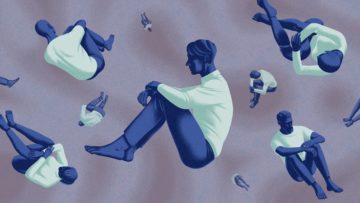Marta Zaraska in Quanta Magazine:
 Loneliness can be difficult to study empirically because it is entirely subjective. Social isolation, a related condition, is different — it’s an objective measure of how few relationships a person has. The experience of loneliness has to be self-reported, although researchers have developed tools such as the UCLA Loneliness Scale to help with assessing the depths of an individual’s feelings. From such work, it’s clear that the physical and psychological toll of loneliness across the globe is profound. In one survey, 22% of Americans and 23% of British people said they felt lonely always or often. And that was before the pandemic. As of October 2020, 36% of Americans reported “serious loneliness.”
Loneliness can be difficult to study empirically because it is entirely subjective. Social isolation, a related condition, is different — it’s an objective measure of how few relationships a person has. The experience of loneliness has to be self-reported, although researchers have developed tools such as the UCLA Loneliness Scale to help with assessing the depths of an individual’s feelings. From such work, it’s clear that the physical and psychological toll of loneliness across the globe is profound. In one survey, 22% of Americans and 23% of British people said they felt lonely always or often. And that was before the pandemic. As of October 2020, 36% of Americans reported “serious loneliness.”
As the researchers described in 2019, in comparison to a control group, the socially isolated team lost volume in their prefrontal cortex — the region at the front of the brain, just behind the forehead, that is chiefly responsible for decision-making and problem-solving. They also had lower levels of brain-derived neurotrophic factor, a protein that nurtures the development and survival of nerve cells in the brain. The reduction persisted for at least a month and a half after the team’s return from Antarctica.
More here.
